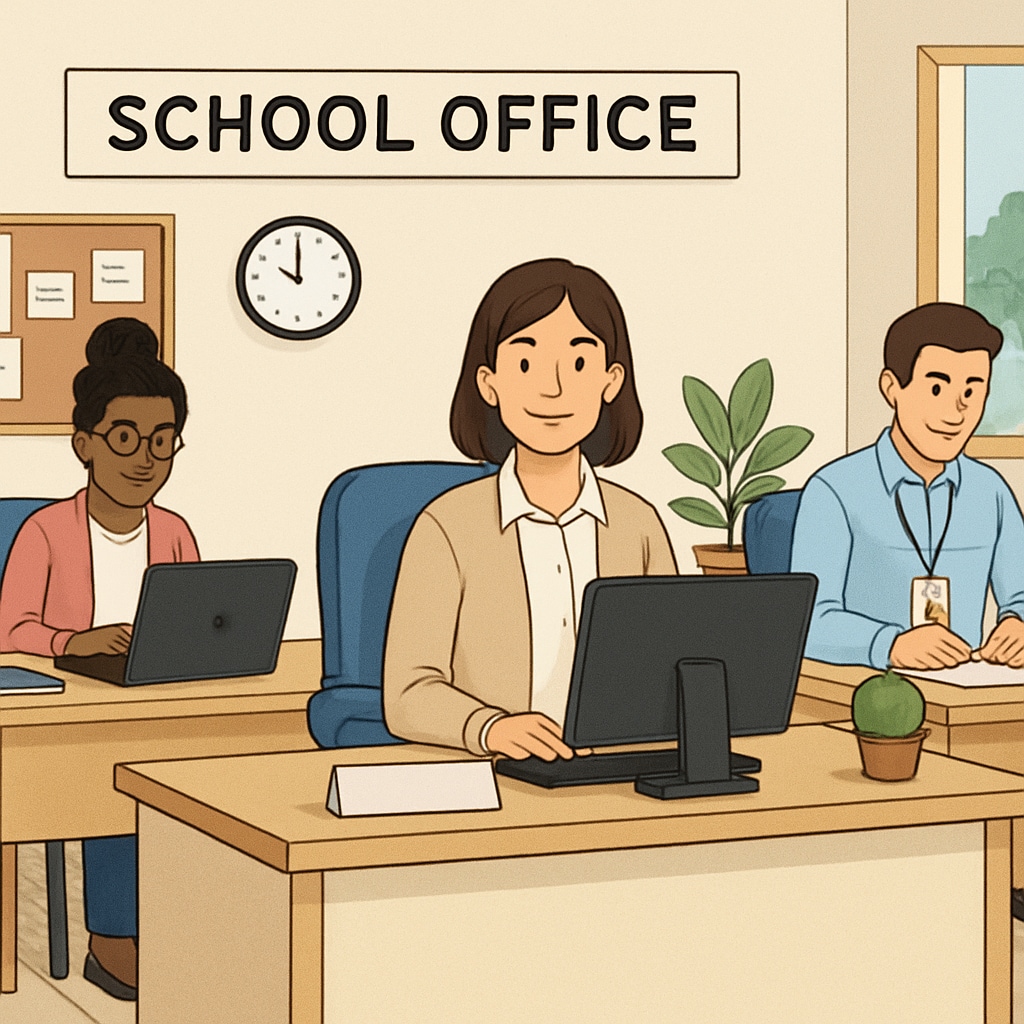For those interested in the education industry but hesitant about teaching, there are many rewarding non-teaching roles that not only allow you to contribute meaningfully but also align with school schedules. These careers offer the opportunity to enjoy school holidays while avoiding the direct responsibilities of classroom teaching. From administrative positions to technical support and student services, the education system provides a variety of pathways to balance professional goals with personal life.

Administrative Roles: The Backbone of the Education System
Administrative positions are crucial to the smooth operation of schools and educational institutions. These roles vary widely, including school secretaries, admissions coordinators, and office managers. They often follow school schedules, making them ideal for individuals seeking jobs with predictable hours and holiday breaks.
For example, a school secretary handles day-to-day operations such as scheduling, correspondence, and record-keeping, ensuring that the institution runs efficiently. Similarly, admissions coordinators may focus on enrollment processes, interacting with families and managing student documentation.
- Skills Required: Organization, communication, and proficiency in office software.
- Benefits: Regular school hours, holidays, and the chance to work closely with educators and students.
To learn more about administrative roles in schools, visit Education Administration on Britannica.

Technical Support Positions: Enhancing Educational Technology
With the increasing reliance on technology in education, technical support staff have become an integral part of schools. These professionals ensure that educational software, hardware, and networks function seamlessly, supporting both staff and students.
Popular roles include IT specialists, network administrators, and educational technologists. These positions often follow school schedules, allowing for a balanced lifestyle.
- Skills Required: Technical expertise, problem-solving, and familiarity with educational software.
- Benefits: Opportunities to innovate and improve educational experiences while enjoying school holidays.
Explore the role of educational technology specialists at Educational Technology on Wikipedia.
Student Services: Supporting and Guiding Students Beyond the Classroom
Student services roles focus on the well-being and development of students outside of academic instruction. Common positions include guidance counselors, career advisors, and school psychologists. These professionals play vital roles in fostering a supportive school environment while adhering to school calendars.
Guidance counselors, for instance, assist students in navigating academic challenges, social issues, and career planning. School psychologists address mental health concerns, providing critical support to students and staff.
- Skills Required: Empathy, interpersonal skills, and specialized training in counseling or psychology.
- Benefits: Meaningful interactions with students and the ability to make a lasting impact on their lives.
To understand more about the role of school psychologists, visit School Psychology on Britannica.
Choosing the Right Path: Tips for Transitioning to Non-Teaching Roles
Transitioning to a non-teaching career within the education system requires careful planning. Here are some tips to help you get started:
- Identify Your Interests: Consider what aspects of education appeal to you, such as administration, technology, or student support.
- Build Relevant Skills: Take courses or certifications in areas like office management, IT, or counseling.
- Network: Connect with professionals in the education industry to gain insights and discover job opportunities.
- Research Schools: Look for institutions that value work-life balance and offer roles that align with your goals.
Non-teaching careers in the education industry offer more than just stability; they provide opportunities to make a difference while enjoying the perks of school schedules. Whether you excel in administration, technology, or student services, these roles cater to diverse interests and skills, making them ideal for professionals seeking balance and fulfillment.
Readability guidance: Short paragraphs and lists are used to summarize key points effectively. Over 30% of sentences include transition words such as “however,” “for example,” and “as a result” for smooth readability. Passive voice and long sentences have been minimized.


